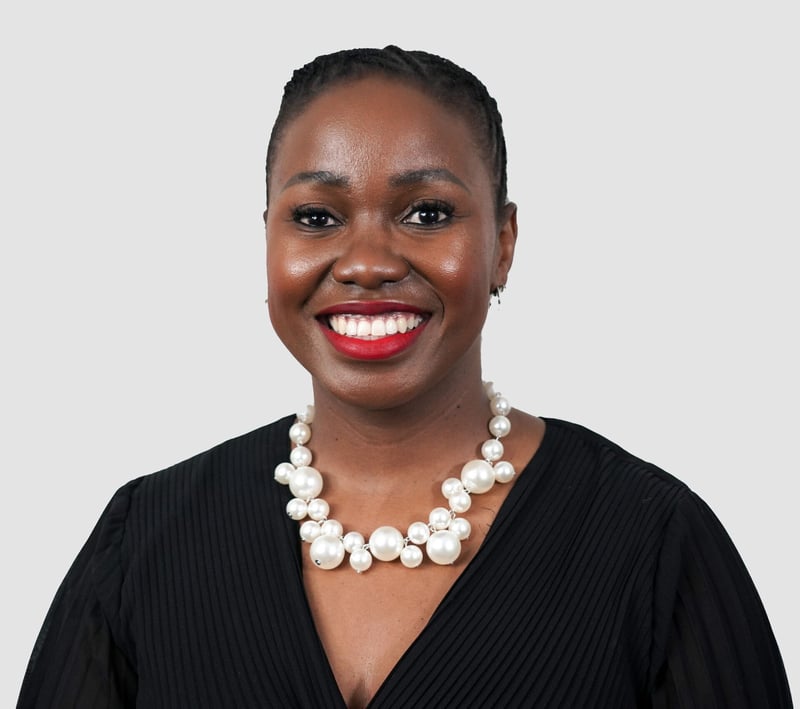Insight - Inclusive Leadership in Real Estate – A Pathway to Better Cities
Written by: Angie Di Giovampaolo Save to Instapaper
As August ends and Women's Month conversations transition to those about heritage, a crucial question remains: How do we sustain the momentum of gender inclusivity and continue building a South Africa that mirrors its rich diversity?
Inclusivity becomes systemic when cities, infrastructure, and buildings are designed to promote it. An inclusive city fosters social and economic development, creating environments where everyone can thrive. Considering that 57% of the global population resides in urban areas, contributing around 80% of the world’s GDP, inclusivity directly impacts 5 billion people and USD 71 trillion.
Our Role in Shaping Cities
At Cushman & Wakefield | BROLL, we are more than just real estate advisors—we are city shapers. We play a significant role in influencing the lives of urban inhabitants. Cushman & Wakefield has developed the industry's first Inclusive Cities Barometer, a powerful tool to foster a data-driven dialogue on how real estate impacts urban inclusion and the social fabric of our cities.
The Barometer assesses the inclusiveness of 44 cities in EMEA and 35 cities in APAC, using nearly 9,000 data points across 110 metrics and four dimensions. It guides cities and industry stakeholders to create more inclusive, vibrant, and sustainable urban environments.
The Essence of Inclusive Cities
Inclusive cities prioritise diversity, equity, and accessibility for all residents. They embody spatial justice, ensuring that all citizens can participate in urban life. This includes ensuring close connectivity between housing and work locations to support families, promoting gender equality, and developing mixed-use schemes to reduce crime and improve safety.
No two cities are alike—each city is a dynamic ecosystem, shaped by the needs of its diverse populations.
Inclusivity as an Asset
Inclusivity is a valuable asset. More inclusive cities tend to attract talent and innovation, leading to investment and social mobility. These cities adapt better to the changing needs of their citizens and stakeholders. Collaboration among urban planners, government, design, and real estate industries can create environments where everyone prospers.
Categorising Inclusive Cities
Cities are grouped into four categories based on their progress toward inclusive environments:
- Mature Urban Centres: Long histories of social inclusion with balanced economic growth.
- Social Drivers: Strong social inclusion but working to reduce inequalities.
- Rapid Risers: Rapidly advancing urban inclusion initiatives.
- Emergers: Beginning their journey with ambition and determination.
South Africa’s Progress
Johannesburg and Cape Town fall into the Emergers category. Key factors contributing to their inclusivity are access to green spaces, community-led efforts to support marginalised communities, and increasing social infrastructure to build connectivity between previously segregated areas.
Though progress is promising, complex and interrelated factors must be addressed. Cities need high-quality jobs, safe transport, and non-discriminatory environments to achieve inclusivity.
The Impact of Female Leadership
The real estate and construction sectors, alongside government, play a critical role in shaping the built environment. Inclusive leadership ensures that what gets built serves all citizens.
Despite the advantages of gender-diverse leadership, women remain underrepresented in South Africa’s property sector. Women make up 51% of the population but occupy less than 24% of leadership roles, with African women at less than 4%.
Overcoming systemic challenges is essential to ensure gender parity in leadership, which benefits everyone. Women in the C-Suite enrich organisational strategies and decisions, directly impacting the economies of cities and the lives of their inhabitants.
Inclusive Real Estate for Inclusive Cities
Inclusive cities rely on an inclusive real estate sector. At Cushman & Wakefield | BROLL, we embrace the opportunity to create environments that are not only inclusive by design but also vibrant, resilient, and reflective of South Africa’s diversity.
Total Words: 639
Get new press articles by email
As a boutique, female-centric, family-run agency, Catchwords provides a full range of services in public relations, publicity, marketing, communications, audience engagement and reputation management. We are creative thinkers, and dynamic problem-solvers too: we strategise with and for you, monitoring perceptions, assessing risks and proactively intervening to foster your good name.
Latest from
- Reside Summit 2025 calls for public-private partnerships to tackle South Africa’s housing crisis
- Design + Build firm id.work unveils refreshed brand identity and new logo.
- Strategic property transfer elevates Enyuka to prominent position in unlisted retail real estate
- New Lion Pride Shopping Centre opens a community hub for growing Fourways node
- MSCI South Africa Green Annual Property Index 2024
- SAMRRA appoints Palesa Mkhize as first full-time CEO, signalling growth in South Africa’s multifamily rental housing sector
- Standard Bank joins SAMRRA
- Growthpoint’s new Sandton Drive Link Bridge connects assets, access and attractions in Sandton Central
- Growthpoint and Threads for iKasi partner bring warmth and dignity to Tembisa learners
- Bold revamp of Groblersdal Mall to deliver fresh retail experience in the heart of Limpopo
- Johannesburg builds on its top position as Africa’s premier data centre market
- AI in proptech emerges as a key growth engine for the residential property sector
- Why the real estate insurance model must evolve
- Emira delivers exceptional full-year results with robust fundamentals underpinning its strategic pivot
- Growthpoint's Logistics Portfolio is Bolstered by Completion of Arterial Industrial Estate, Cape Town
The Pulse Latest Articles
- Opinion Piece: Activating Leadership To Engage The Passive Workforce (February 11, 2026)
- Tchagra Trail Wilderness Consulting Launches A New Safari Experience In Photography And Tracking (February 9, 2026)
- Magic: The Gathering Releases Lorwyn Eclipsed (February 6, 2026)
- Back To Work, Back To Balance: Rethinking The 3pm Slump (February 5, 2026)
- Back-to-school Lunchboxes That Just Make Sense (February 5, 2026)
